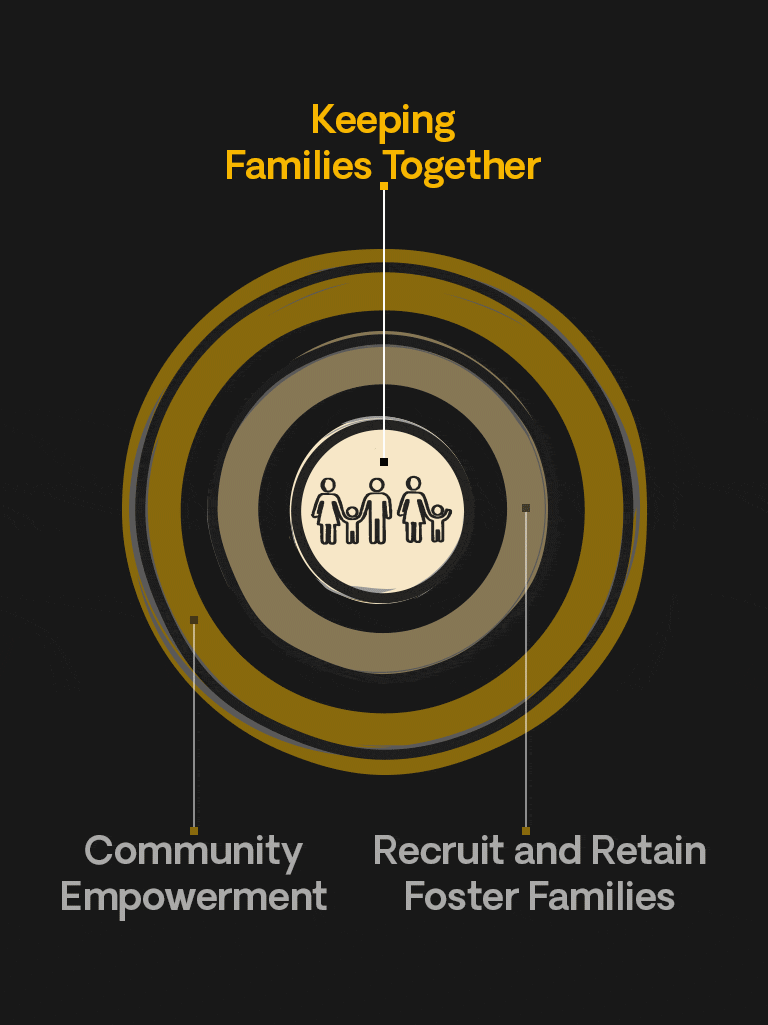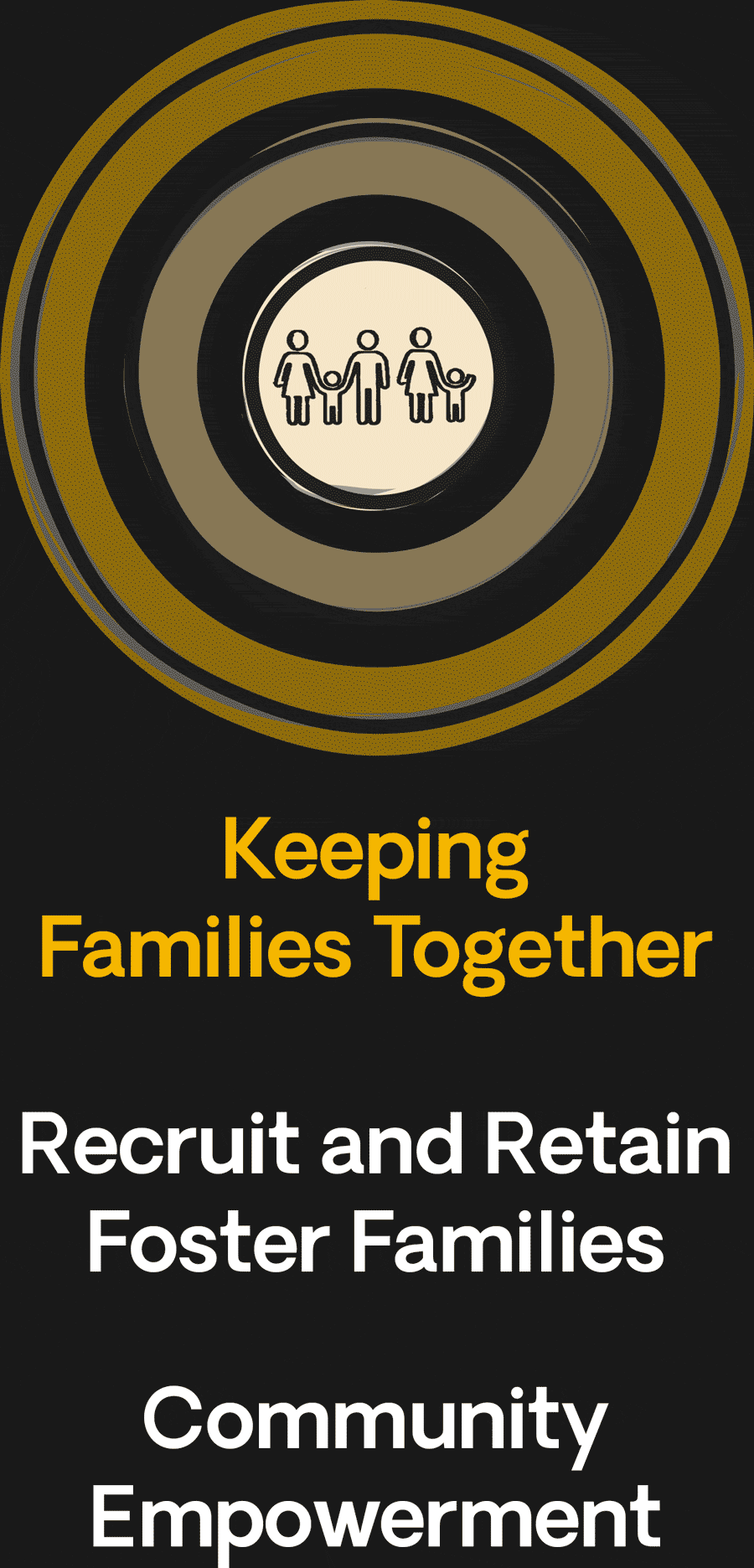We serve as a strategic philanthropic partner to states, working alongside local governments to assess their needs, connecting them with local nonprofits that provide them with data-driven solutions. Together, we strategize solutions that are both repeatable and scalable, meeting the unique needs of each community.
Our Well-Being Support Ecosystem™ unites state governments, nonprofits, churches, businesses, and individuals to create holistic, sustainable support so every family has what they need to thrive. Our Solution focuses on three priorities: preventing, preserving, and reunifying families, recruiting and retaining foster families, and community empowerment.


Keeping Families Together
Our first priority is keeping families together before government intervention is needed. By supporting birth parents and kinship caregivers, we can help keep families together or promote healthy reunifications when possible.
Recruit and Retain
Foster Families
By recruiting and retaining ideal foster families, we can help create better outcomes for children. Ideal foster families are in the same ZIP code, speak the same language, and provide a familiar environment.
Community Empowerment
We unite local agencies, services, and resources by equipping them with tools to serve families in their community effectively.
No single government, organization, church, or individual can solve the child welfare crisis alone. Real change happens when we come together, share resources, and surround families with holistic support.
That’s why we use a collective impact approach, a proven theory of change framework developed by Stanford University. By uniting five key groups of stakeholders, we put the Well-Being Support Ecosystem ™ in motion, creating sustainable solutions for families state-by-state.
Churches hold a unique position to mobilize communities in caring for vulnerable families, meeting practical needs, and bringing hope where it’s needed most.
Local governments remove barriers, providing a unified, statewide approach allowing communities to work together to support families and children.
Nonprofits are essential for delivering data-driven, community-focused solutions. They adapt to local needs, leaving no family unsupported.
Businesses contribute resources, innovation, and leadership that sustain and expand efforts
to end the child welfare crisis.
From volunteers to visionaries, people like you are driving lasting change for children and families across the nation.
See how you can join the mission with For Others and be a part of the solution in your own community!